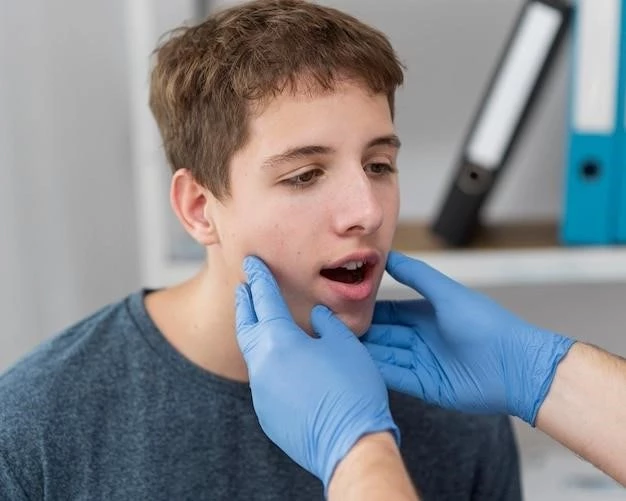Article Plan⁚ Disease ‒ Oral Facial Digital Syndrome Type 4
The oral-facial-digital syndromes (OFDS) represent a group of rare developmental disorders affecting the mouth‚ face‚ and digits․ Additional signs may involve the brain‚ kidneys‚ and other organs‚ thus better defining the different clinical subtypes․ OFD Type 4 is considered rare‚ with an autosomal inheritance pattern‚ caused by mutations in various genes‚ including the OFD1 gene․ It is estimated to occur in about 1 in 50‚000 to 1 in 250‚000 newborns․
Introduction to Oral Facial Digital Syndrome
Oral-facial-digital syndromes (OFDS) encompass a group of rare developmental disorders affecting the mouth‚ face‚ and digits․ Variants such as OFD Type VI and OFD I exhibit distinct clinical features‚ with X-linked inheritance in OFDI and autosomal patterns in others․ These syndromes manifest a spectrum of anomalies in oral‚ facial‚ and digital structures‚ often extending to the brain‚ kidneys‚ and more․ Recent genetic discoveries shed light on the molecular basis‚ linking these disorders to primary cilia dysfunction‚ with genes like OFD1 implicated in the pathogenesis․ Advances in identifying causative genes have enabled improved diagnosis and delineated multiple subtypes within the OFDS family‚ highlighting the complexity and heterogeneity of these conditions․
Overview of Oral Facial Digital Syndrome Type 4
Oral-Facial-Digital Syndrome Type 4 (OFDS 4) is classified as a rare genetic disorder that affects the development of the oral cavity‚ facial features‚ and digits․ It is known for its autosomal inheritance pattern‚ primarily caused by mutations in genes such as OFD1․ The condition is estimated to occur in approximately 1 in 50‚000 to 1 in 250‚000 newborns․ Individuals with OFDS 4 may present with a range of anomalies‚ including oral issues‚ facial abnormalities‚ and digital malformations‚ highlighting the complexity of this syndrome within the broader spectrum of oral-facial-digital syndromes․
Genetic Basis and Inheritance Patterns
Oral facial digital syndromes (OFDS) encompass a heterogeneous group of rare developmental disorders primarily affecting the mouth‚ face‚ and digits․ OFD type IV (OFD4) is one of the rarer subtypes of this condition‚ with an autosomal inheritance pattern․ Mutations in various genes‚ including OFD1‚ have been identified as causative factors for OFD4․ These genetic abnormalities often lead to disruptions in primary cilia function‚ affecting organ development and growth․ Understanding the genetic basis and inheritance patterns of OFD4 is crucial for accurate diagnosis and management of individuals with this syndrome․
Clinical Features of OFD Type 4
Oral Facial Digital Syndrome Type 4 (OFD4) is characterized by a spectrum of clinical features affecting the oral cavity‚ facial structures‚ and digits․ Individuals with OFD4 may present with abnormalities such as cleft palate‚ lobulated tongue‚ craniofacial anomalies‚ syndactyly‚ and polydactyly․ These manifestations highlight the diverse nature of OFD4 within the broader category of oral-facial-digital syndromes․ Additionally‚ OFD4 may involve central nervous system abnormalities and kidney defects‚ contributing to the complexity of the condition․ Timely recognition of these clinical features is essential for accurate diagnosis and management of individuals with OFD4․
Diagnosis and Differential Diagnosis
Diagnosing Oral Facial Digital Syndrome Type 4 (OFD4) involves a thorough clinical evaluation‚ including assessing oral cavity‚ facial characteristics‚ and digit abnormalities․ Genetic testing is crucial for confirming the diagnosis‚ with mutation analysis of genes such as OFD1 being instrumental․ Differential diagnosis may include other subtypes of oral-facial-digital syndromes‚ like OFD1‚ OFD II‚ and OFD VI‚ which present overlapping but distinct clinical features․ Accurate diagnosis is essential for appropriate management and genetic counseling for individuals and families affected by OFD4․
Treatment Approaches for OFD Type 4
Management of Oral-Facial-Digital Syndrome Type 4 (OFD4) typically involves a multidisciplinary approach to address the various clinical manifestations․ Treatment focuses on addressing individual symptoms such as cleft palate repair‚ dental interventions for oral abnormalities‚ and surgical correction of digital anomalies like syndactyly or polydactyly․ Additionally‚ supportive therapies such as speech therapy and occupational therapy may be beneficial for individuals with OFD4 to improve their quality of life and functional abilities․ Regular monitoring by healthcare professionals is essential to tailor treatment plans to the specific needs of each patient․

Prognosis and Complications
The prognosis for individuals with Oral Facial Digital Syndrome Type 4 (OFD4) varies depending on the severity and combination of clinical manifestations․ Complications associated with OFD4 may involve difficulties with feeding and speech due to oral abnormalities‚ challenges with hand function related to digital anomalies‚ and potential cognitive or developmental delays․ Additionally‚ individuals with OFD4 may face social and psychological challenges due to the visible physical differences associated with the syndrome․ Regular medical monitoring and early intervention can help manage complications and improve the overall prognosis for individuals with OFD4․
Comparison with Other Types of Oral Facial Digital Syndrome
Oral-Facial-Digital Syndrome Type 4 (OFD4) is part of a diverse group of conditions collectively known as oral-facial-digital syndromes (OFDS)․ These syndromes encompass multiple rare developmental disorders that affect various aspects of the mouth‚ face‚ and digits․ While OFD4 is characterized by specific clinical features such as cleft palate and digital anomalies‚ other types like OFD1‚ OFD VI‚ and OFD II present distinct yet overlapping manifestations․ Understanding the differences and similarities between the different subtypes of oral-facial-digital syndromes is essential for accurate diagnosis‚ treatment‚ and genetic counseling․
Research and Advances in Understanding OFD Type 4
Oral-Facial-Digital Syndrome Type 4 (OFD4) is part of a spectrum of related conditions that affect the development of the oral cavity‚ facial features‚ and digits․ Researchers have identified several genetic mutations‚ including those in the OFD1 gene‚ associated with OFD4․ Understanding the molecular basis of OFD4 and its genetic underpinnings has advanced significantly in recent years․ These advancements in research have led to improved diagnosis‚ management‚ and potential targeted therapies for individuals with OFD4․ Ongoing studies continue to unravel the complexities of OFD4 and its genetic implications‚ shedding light on potential future treatment strategies․
Supportive Care and Management Strategies
Individuals diagnosed with Oral Facial Digital Syndrome Type 4 (OFD4) often require comprehensive supportive care and management strategies to address the diverse range of clinical manifestations․ Supportive care may involve a multidisciplinary team approach‚ including but not limited to dental professionals‚ genetic counselors‚ speech therapists‚ and occupational therapists․ Management strategies focus on addressing specific symptoms and complications associated with OFD4‚ such as feeding difficulties‚ speech impairments‚ and hand function challenges․ Regular monitoring and follow-up are crucial to ensure optimal quality of life and effective management of individuals with OFD4․
Impact on Quality of Life and Daily Functioning
Oral Facial Digital Syndrome Type 4 (OFD4) can have a profound impact on the quality of life and daily functioning of individuals affected by the condition․ The complex array of clinical features‚ including abnormalities in the oral cavity‚ facial structures‚ and digits‚ may present challenges in speech‚ feeding‚ hand function‚ and social interactions․ These factors can significantly affect how individuals navigate daily tasks and interact with their surroundings․ Supportive care‚ early interventions‚ and access to multidisciplinary healthcare services are essential to mitigate the impact of OFD4 on the quality of life and daily functioning of those living with the syndrome․

Conclusion and Future Perspectives
Oral Facial Digital Syndrome Type 4 (OFD4) is a rare genetic disorder that presents a range of challenges for affected individuals․ The advancements in genetic research have shed light on the molecular basis of OFD4 and its classification within the broader spectrum of oral-facial-digital syndromes․ Moving forward‚ continued research efforts aim to enhance diagnosis‚ treatment‚ and management strategies for individuals with OFD4․ By leveraging emerging technologies such as next-generation sequencing‚ researchers hope to further elucidate the genetic complexities of OFD4 and explore potential targeted therapies․ Collaborative interdisciplinary approaches will play a crucial role in improving the overall care and outcomes for individuals living with OFD4․
